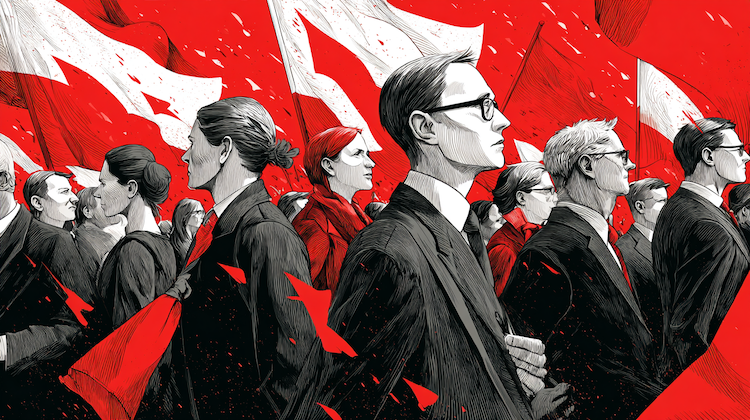Poland's Polarised Election Signals a Wider Crisis for Liberal Democracy
 A razor-thin victory for the national-conservative Law and Justice Party reveals deep societal divisions and a broader erosion of centrist coalitions across the West.
https://www.socialeurope.eu/polands-polarised-election-signals-a-wider-crisis-for-liberal-democracy
A razor-thin victory for the national-conservative Law and Justice Party reveals deep societal divisions and a broader erosion of centrist coalitions across the West.
https://www.socialeurope.eu/polands-polarised-election-signals-a-wider-crisis-for-liberal-democracy

Karol Nawrocki, representing Poland’s national-conservative Law and Justice Party, has narrowly won the country’s presidential election, defeating Rafał Trzaskowski, the pro-European mayor of Warsaw and member of Donald Tusk’s Civic Coalition, with 50.9 percent of the vote. Voter turnout reached a record 71.6 percent, a striking sign of how deeply engaged, and divided, Polish society has become. As in many Western democracies, the result reveals a nation split down the middle: between conservative rural provinces and progressive urban centres, between nationalism and liberal internationalism.
This outcome extends beyond the local context, acting as a warning for the broader crisis facing liberal democracy globally. The stark divide in Poland mirrors a larger pattern across the West: the weakening of the centrist coalitions that once underpinned liberal governance, particularly in the decades following the Cold War. The collapse of the Soviet Union not only reshaped the global map but also subtly removed a crucial narrative tool for liberalism – the clear contrast with an illiberal adversary.
Without a distinct external enemy, the liberal project lost a potent source of unity: the capacity to position itself as a necessary defence against an illiberal threat. In the subsequent decades, centrist elites struggled to maintain coherence, while populist challengers exploited increasing tensions between market openness and social protection, and between cosmopolitanism and community. Liberalism’s decline was not solely due to voter backlash; it also suffered from a fatigue of its own narrative.
The post-war liberal order was never ideologically uniform. It encompassed a set of internal contradictions: between market openness and social cohesion, between international cooperation and national control, and between elite cosmopolitanism and local communities. The glue that held this coalition together was not internal consistency, but external contrast. Liberal democracy, however flawed, stood in opposition to a visible, illiberal alternative.
snip

